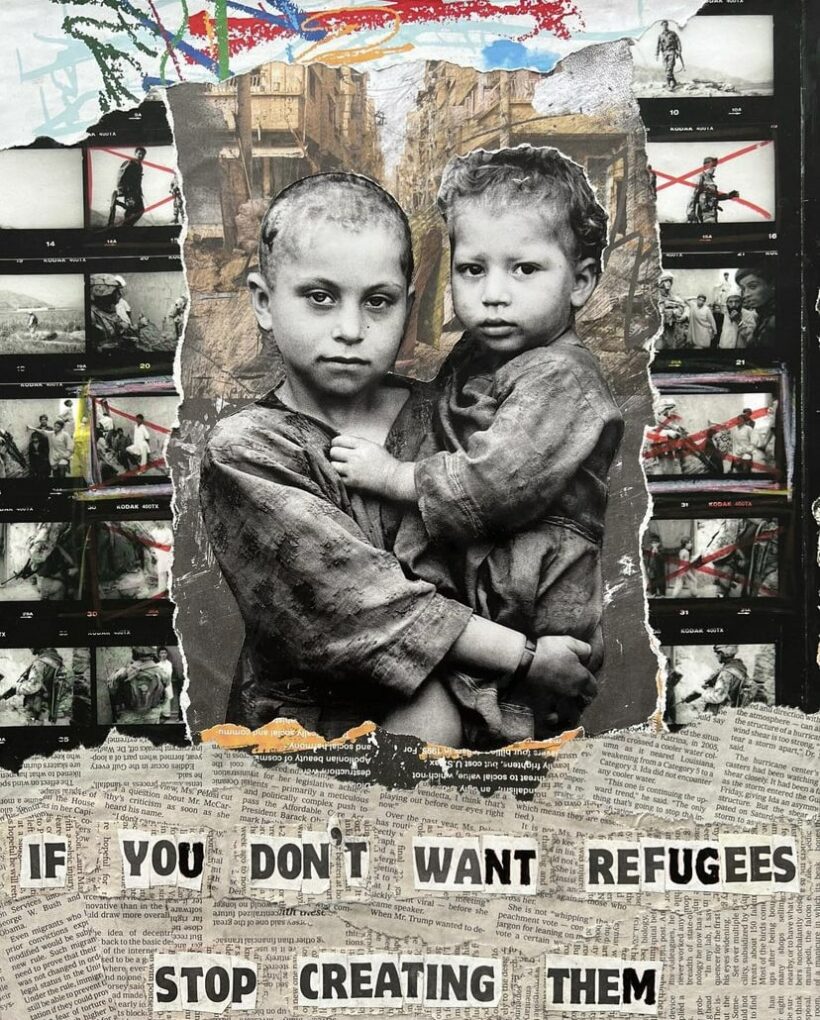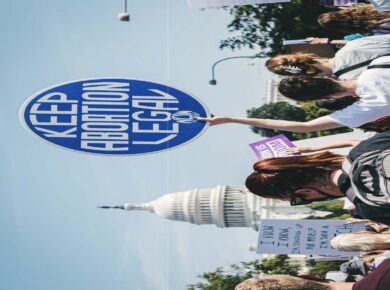Disclaimer: This post reflects solely the opinion of the authors and should not be taken to represent the general views of IPPR’s management/ editorial team or those of fellow authors
War and global conflict over the years has sustained a massive refugee crisis within the international community. But the recent Russian invasion of Ukraine has highlighted how the support extended to refugee communities is highly variable depending on the colour of their skin. While states have opened their borders to people fleeing violence in their homeland time and again, this sympathy is often contingent on how they look and where these people come from. The humanitarian crisis in Ukraine saw an outflow of millions of refugees crossing into neighbouring states which opened up their borders in a show of solidarity. Yet, in Poland security forces pointed guns at African students. In Romania, officers often removed Roma women from facilities designated for Ukrainian refugees. And even within Ukraine, civilians of colour were stopped at border crossings, check points and even denied boarding into buses and trains that would carry them to safety leaving them stranded in a war-ravaged country.
An Imbalance in Media Coverage
The coverage of the Ukraine crisis is unparalleled. Broadcasts in western media outlets were dominated by developments in Ukraine, and rightfully so. But the global outpouring of military, financial and media support to Ukraine is in stark contrast to the experiences of people in other conflict regions. The war in Yemen, the Syrian civil war, and the Israeli-Palestinian conflict to name a few have largely been underreported.
The war in Ukraine has brought several inconsistencies into the limelight with regards to how white, brown and black lives fleeing persecution and resisting oppression are treated. An astounding lack of any media attention and information regarding conflicts in Africa, Asia or the Middle East reflects an absence of concern for the rights and dignity of refugee communities of colour. The difference in the amount of media attention and empathy for people suffering from wars in the Middle East in comparison to the war in Ukraine is undeniable.
Media organisations have published positive even inspiring stories of Ukrainian resistance. Posts about citizens volunteering at shelters to make Molotov cocktails against Russian forces were widely circulated on social media. However, similar acts of citizens defending their homeland from whom they consider to be occupying forces are labelled as acts of terror by the same media organisations and heads of state alike. For instance, the arrest of brown Muslim teenagers in the occupied West Bank is normalised or even justified because the media labels them as terrorists while white refugees from Ukraine hurling Molotov cocktails, and blowing up bridges with self-made bombs to delay Russian access to cities are glorified as heroes. A common saying goes, ‘One man’s terrorist is another man’s freedom fighter’. But when it comes to war-torn regions, it is often that refugees of colour are perceived as a threat to peace and security while white communities are epitomised by the need to provide havens to those escaping occupying powers.
Image source: Reuters/Viacheslav Ratynskyi
Civilians across the world vulnerable to imperial violence have watched the war in Ukraine unfold in horror. In response to this, a Palestinian writer Mohammed Rafik Mhawesh wrote, “the global community has been gaslighting us for years.”
Global Double Standards
From the very beginning, the international community has displayed a united front to push back against Russian aggression. Swift economic sanctions, worldwide condemnation, and opening up borders have all been part of assisting Ukranianian refugees and their integration to life in new states. Yet the same populist leaders who have adopted hardline immigration positions to prevent forced migration and restrict entry to Europe from people from the Middle East have openly welcomed refugees from Ukraine. While this is not a criticism and rather the right thing to do, it is a reflection on how the right thing becomes an option only when refugees originate from predominantly white countries. Such warm welcomes are not bestowed upon non-white asylum seekers.
The boycott of the Russian market and economic sanctions by the United States and other countries are fair actions. But the same countries which condemned Putin’s unprovoked invasion continue to provide arms and ammunition to Saudi Arabia which prolongs the Yemeni War. US military intervention across the world is infamous, and in many instances criminal. Perhaps it is easier to provide aid to persons affected by another state’s aggression rather than their own.
Image Source: Twitter
Charlie D’Agata; a CBS foreign correspondent was on air when he said about Ukraine that it “isn’t a place, with all due respect, like Iraq or Afghanistan, that has seen conflict raging for decades. This is a relatively civilized, relatively European – I have to choose those words carefully, too – city, one where you wouldn’t expect that or hope that it’s going to happen.”
D’Agata later apologised but he voiced what several others believe and have been vocal about as well. This includes UK royalty Prince William’s comment about war being alien in Europe. Historically , however, both the World wars and the practice of colonialism with the mighty British Empire originated in Europe. The designation of Europe as a modern, civilised region in stark contrast to the normalisation of brutish, conflict-ridden zones of Africa and Asia stems from colonial ideologies. It reinforces the idea that Afghans, Syrians, Yemenis and refugees of colour are less worthy of global support.
This war has thus exposed the double standards of the west where states exhibiting imperial behaviour, turn into staunch supporters of refugee rights and sovereignty when the people involved do not come from non-white countries.
Conclusion
With the extensive media coverage of the Russian invasion concerns regarding the lives of black and brown refugees were raised. Instantaneously, well-meaning people have spoken up about ‘whataboutism’.
They have noted how this is not the right time to talk about Syria, Kashmir, Libya, Palestine and countless others. But this is exactly the time to stand up for people and resistance movements across the globe. The UNHCR chief noted that it is important to, “sit in the discomfort of recognizing that while our organization exists to safeguard the human rights of people forced to flee, some among us have experienced exclusion and inequity.”
Standing in solidarity with Ukrainian citizens, and Russian citizens risking their freedom and lives speaking out against Putin’s agression, while at the same time recognising the double standards of western imperialist states are not mutually exclusive of each other. If there is one takeaway from the crisis in Ukraine it would be to understand that the trauma of evacuation, and persecution universally is a painful experience no matter the colour of one’s skin. It is important for the global community to stand with each and every one of them.
By Antara Basu,
Antara is a first-year BSc Politics and International Relations student at UCL. She enjoys exploring identity politics and international conflict and security







